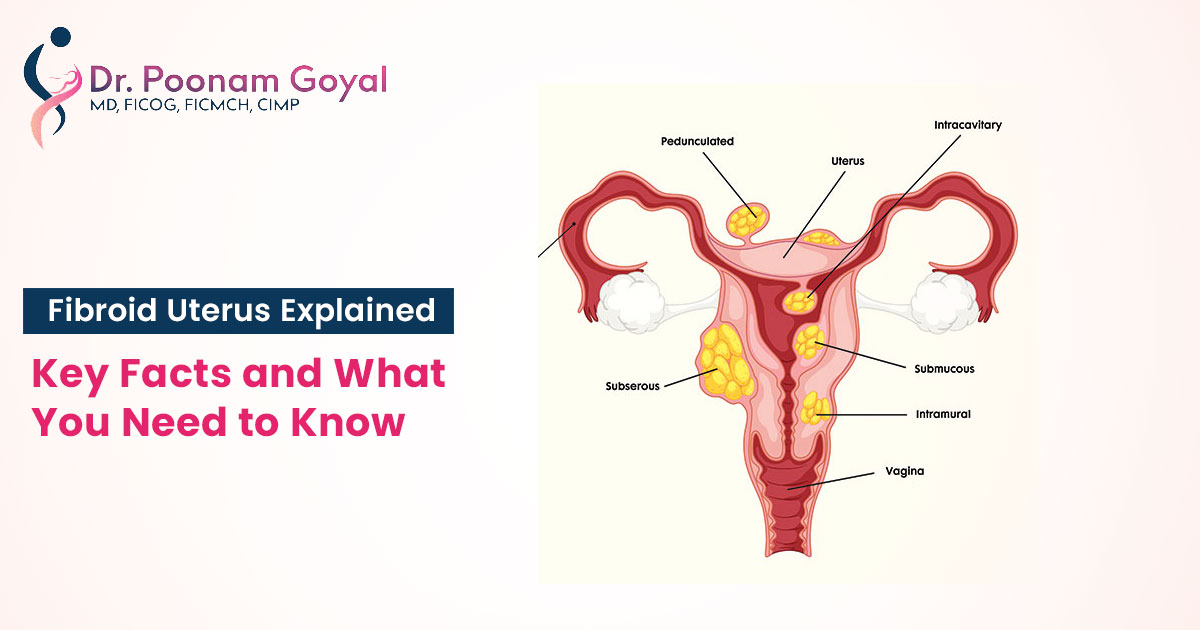
Uterine fibroids, also known as leiomyomas, are benign tumours that grow within or on the uterus. While non-cancerous, fibroids can cause significant discomfort and complications for many women. Understanding the basics of uterine fibroids, their symptoms, diagnosis, and treatment options is crucial for women experiencing issues related to their reproductive health.
Uterine fibroids are abnormal growths of muscle and connective tissue in the uterus. They range in size and quantity from the size of a seed to that of a grapefruit. Fibroids can grow inside the uterus, on its outer surface, or within the uterine wall. Dr Poonam Goyal, The Best Gynaecologist in Delhi mentions that many women may have fibroids and not even realize it, as they are often asymptomatic. However, for some, fibroids can lead to troublesome symptoms and require medical attention.
Common Condition: Uterine fibroids are extremely common, particularly in women of reproductive age. It is estimated that 70% to 80% of women will develop fibroids by the time they reach age 50.
Hormonal Influence: The growth of fibroids is closely linked to hormones, particularly estrogen and progesterone. This is why they are more likely to appear during a woman’s childbearing years and tend to shrink after menopause.
Variety of Symptoms: While some fibroids cause no symptoms, others can lead to heavy menstrual bleeding, pelvic pain, frequent urination, and infertility.
Risk Factors: Age, family history, obesity, and lifestyle factors such as diet and stress can increase the risk of developing fibroids. Compared to women of other ethnicities, African-American women have a higher risk of developing fibroids.
Fibroid symptoms can vary widely. Some common symptoms include:
However, it is important to note that not all women with fibroids experience these symptoms.
Typically, fibroids are discovered during a regular pelvic exam. However, to confirm their presence and determine their size and location, a gynaecologist may recommend imaging tests such as ultrasound, MRI, or hysteroscopy. Early detection is essential, especially for women experiencing symptoms that affect their quality of life.
Treatment for fibroids depends on their size, location, symptoms, and the patient's desire for future pregnancies. In some cases, no treatment is necessary, especially if the fibroids are small and asymptomatic. For symptomatic cases, treatment options include:
Medications: Hormonal medications can help regulate periods and reduce fibroid symptoms, but they do not eliminate fibroids.
Minimally Invasive Procedures: Treatments such as uterine artery embolization (UAE) can shrink fibroids without surgery.
Surgical Options: Myomectomy, the surgical removal of fibroids, is an option for women who wish to preserve their fertility. A hysterectomy, or the removal of the uterus, might be required in extreme circumstances.
When dealing with complex reproductive issues like fibroids, choosing the right specialist is critical. Dr. Poonam Goyal, regarded as the Best Gynaecologist in Delhi, has vast experience in treating uterine fibroids and other gynaecological conditions. With her expert guidance, women receive personalized care, ensuring they are given the best treatment options based on their specific needs. Her expertise in treatments for fibroids makes her one of the most trusted names in gynaecology in Delhi.
Uterine fibroids are a common yet manageable condition. Understanding the symptoms and treatment options can help women take control of their reproductive health. If you're experiencing symptoms or have concerns about fibroids, it's important to consult a healthcare provider. For those seeking expert care, Dr. Poonam Goyal, the Best Gynaecologist in Delhi, offers compassionate and comprehensive treatment for fibroid-related concerns. With early diagnosis and appropriate treatment, women can manage their fibroids and lead healthier lives.